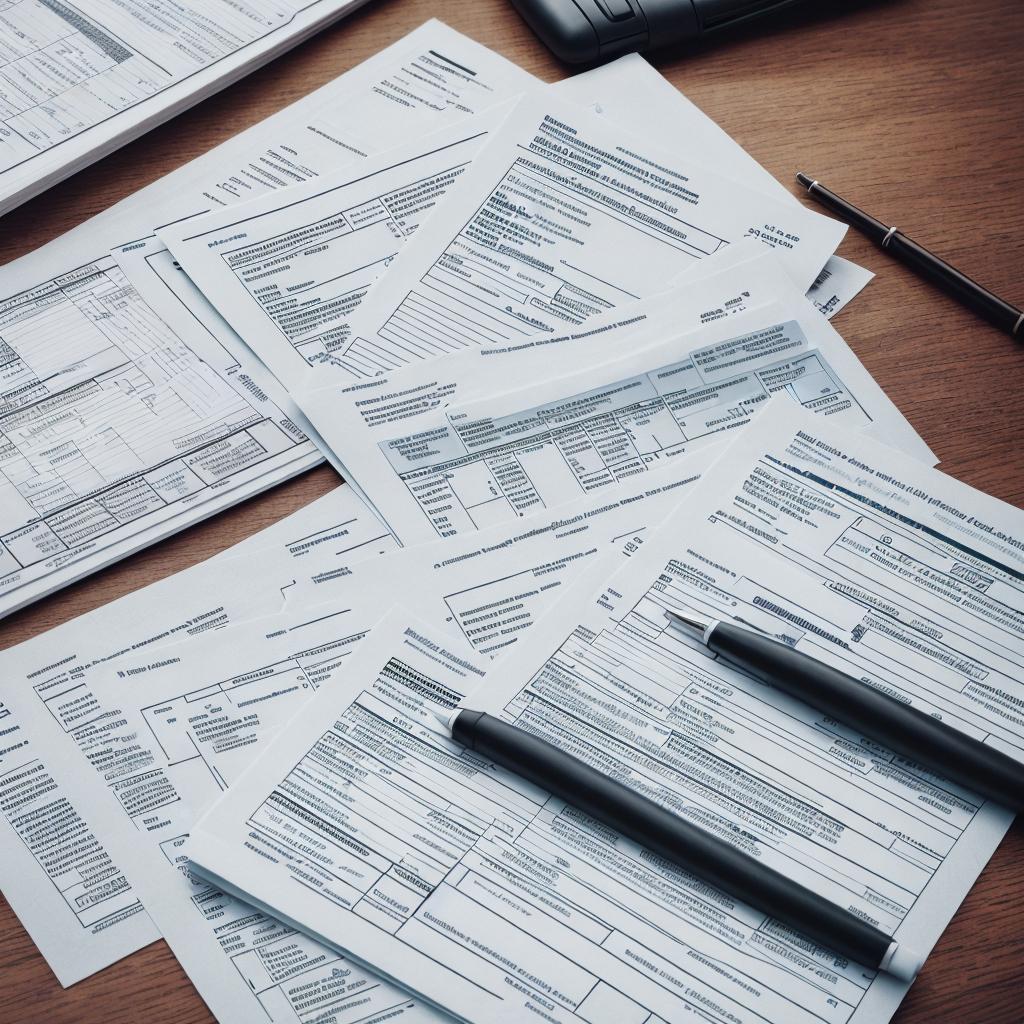What Documents Do You Need for Medicaid Application?

Did you know that millions of Americans rely on Medicaid for their healthcare needs? If you’re considering applying for Medicaid, it’s important to be prepared with the necessary documents.
This article will guide you through the process, outlining the key documents you’ll need to gather.
From proof of income and financial resources to identification documents and medical records, we’ve got you covered.
So let’s dive in and ensure a smooth Medicaid application experience for you.
Key Takeaways
- Proof of income and financial resources, such as recent pay stubs, tax returns, bank statements, and documentation of other sources of income, are required for a Medicaid application.
- Identification documents, including a valid driver’s license, state-issued identification card, passport, birth certificate, U.S. passport, certificate of naturalization, immigration documents, utility bill, lease agreement, and bank statement, may be needed for Medicaid application.
- Social security number verification can be done by providing the original social security card, a copy of social security benefits statement, or W-2 form or tax return.
- Proof of citizenship or immigration status, such as a birth certificate, passport, certificate of naturalization, permanent resident card, employment authorization card, or refugee/asylee documents, is necessary for a Medicaid application. Additionally, medical records and documentation, including medical history, doctor’s notes and reports, and prescription records, may be required.
Proof of Income and Financial Resources
You will often need to provide proof of your income and financial resources when applying for Medicaid. This is to ensure that you meet the eligibility requirements for the program.
Medicaid is a government-funded healthcare assistance program for individuals and families with low income. To apply for Medicaid, you’ll need to gather documentation that verifies your income and financial resources. This may include recent pay stubs, tax returns, bank statements, and proof of any other sources of income such as social security benefits or retirement funds.
It’s important to provide accurate and up-to-date information to avoid any delays or complications in the application process. Additionally, if you have any assets such as property or investments, you may be required to provide documentation to determine your eligibility for Medicaid.
These documents will help the Medicaid office assess your financial situation and determine whether you qualify for the program. Once you have gathered all the necessary proof of income and financial resources, you can then move on to gathering your identification documents, which will be discussed in the next section.
Identification Documents
Gather the necessary identification documents for your Medicaid application. Having the correct identification documents is crucial to ensure a smooth and successful application process. To begin, you’ll need to provide proof of your identity. This can be done by submitting a valid driver’s license, state-issued identification card, or passport. Make sure that these documents are current and not expired.
In addition to proof of identity, you’ll also need to provide documentation of your citizenship or immigration status. This can be done by submitting a birth certificate, U.S. passport, certificate of naturalization, or immigration documents such as a permanent resident card or employment authorization card.
Furthermore, you may be required to provide documentation of your residency. This can be accomplished by providing a utility bill, lease agreement, or bank statement that shows your name and current address.
Once you have gathered these identification documents, you can move on to the next step of the application process, which is social security number verification. This is an important step as your social security number is used to verify your eligibility for Medicaid.
Social Security Number Verification
To verify your eligibility for Medicaid, how can you confirm your social security number? Here are three ways to ensure that your social security number is verified accurately:
- Provide your original social security card: When applying for Medicaid, it’s essential to present your original social security card. This card serves as proof of your social security number and is the most reliable document to confirm your identity.
- Show a copy of your social security benefits statement: If you’re currently receiving social security benefits, you can provide a copy of your benefits statement as verification of your social security number. This document contains your name, social security number, and other relevant information.
- Present your W-2 form or tax return: Another way to confirm your social security number is by providing your W-2 form or your most recent tax return. These documents contain your social security number, which can be used as proof when applying for Medicaid.
Proof of Citizenship or Immigration Status
Verify your citizenship or immigration status to complete your Medicaid application. Providing proof of your citizenship or immigration status is crucial in determining your eligibility for Medicaid benefits. To do so, you’ll need to submit specific documents that demonstrate your legal status in the United States.
If you’re a U.S. citizen, you can provide a copy of your birth certificate, passport, or certificate of naturalization. These documents serve as proof of your citizenship and will satisfy the Medicaid application requirements.
For individuals who aren’t U.S. citizens, you’ll need to provide documentation that verifies your immigration status. This can include your permanent resident card (green card), employment authorization card, or refugee/asylee documents. These documents confirm your legal presence in the country and are necessary for Medicaid eligibility.
It is important to note that Medicaid eligibility requirements may vary depending on your specific circumstances and state regulations. Therefore, it’s advisable to consult with your local Medicaid office or healthcare provider to ensure you submit the required documents.
Once you have successfully verified your citizenship or immigration status, you can move on to gathering the necessary medical records and documentation to complete your Medicaid application.
Medical Records and Documentation
To complete your Medicaid application, gather the necessary medical records and documentation. This step is crucial in ensuring that your application is accurate and complete. Here are three important items to include in your medical records and documentation:
- Medical history: Provide a detailed record of your medical history, including any previous diagnoses, treatments, surgeries, and hospitalizations. This information helps Medicaid determine your current health status and eligibility for specific services.
- Doctor’s notes and reports: Include copies of your doctor’s notes and reports from recent visits, as well as any specialist consultations. These documents provide valuable insight into your current health conditions, ongoing treatments, and recommended courses of action.
- Prescription records: Include a list of all medications you’re currently taking, along with the dosage and frequency. It’s important to provide this information to Medicaid, as it helps them assess your medical needs and determine appropriate coverage.
By gathering and submitting these medical records and documentation, you’re providing Medicaid with a comprehensive overview of your health status. This will help them assess your eligibility and ensure you receive the necessary healthcare services.
Be sure to keep copies of all documents for your own records and submit the originals with your Medicaid application.
Frequently Asked Questions
Are There Any Specific Income Limits or Thresholds That Need to Be Met in Order to Be Eligible for Medicaid?
You must meet specific income limits or thresholds to be eligible for Medicaid. These requirements vary by state and are based on factors such as household size and income level.
What Happens if I Don’t Have a Social Security Number? Can I Still Apply for Medicaid?
If you don’t have a social security number, you may still be able to apply for Medicaid. Contact your local Medicaid office for specific requirements and alternative documentation options.
Are There Any Specific Documents Required for Non-U.S. Citizens or Immigrants to Apply for Medicaid?
To apply for Medicaid as a non-U.S. citizen or immigrant, you will need specific documents such as proof of immigration status, income verification, and identification. These documents are necessary to determine eligibility for Medicaid benefits.
Can I Use My Health Insurance Card as Proof of Health Insurance Coverage for Medicaid Application?
Yes, you can use your health insurance card as proof of health insurance coverage for Medicaid application. However, you may also need to provide additional documents such as proof of income, identification, and residency.
Do I Need to Provide Documentation for All Medical Expenses Incurred in the Past Year, or Only Certain Types of Medical Records?
You only need to provide certain types of medical records for the past year. Not all medical expenses require documentation. Focus on the ones that are relevant to your Medicaid application.



